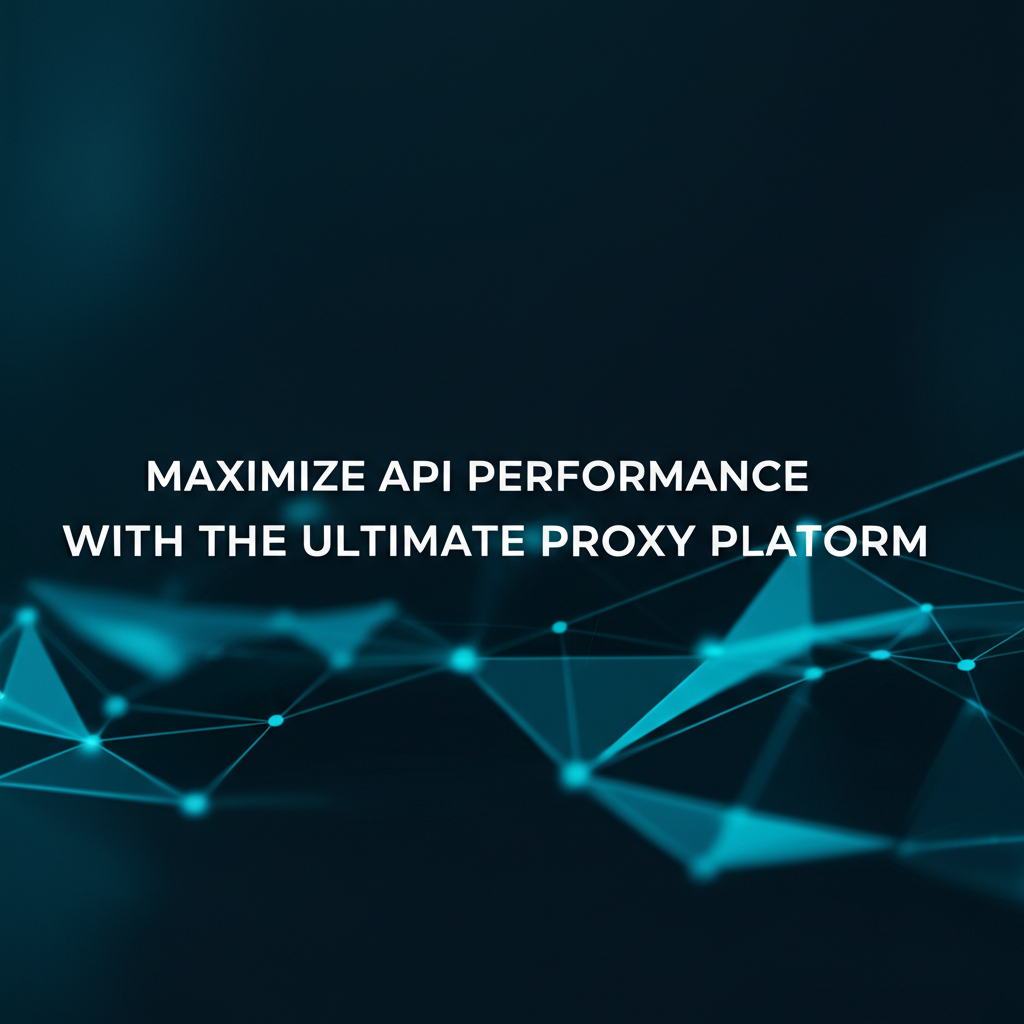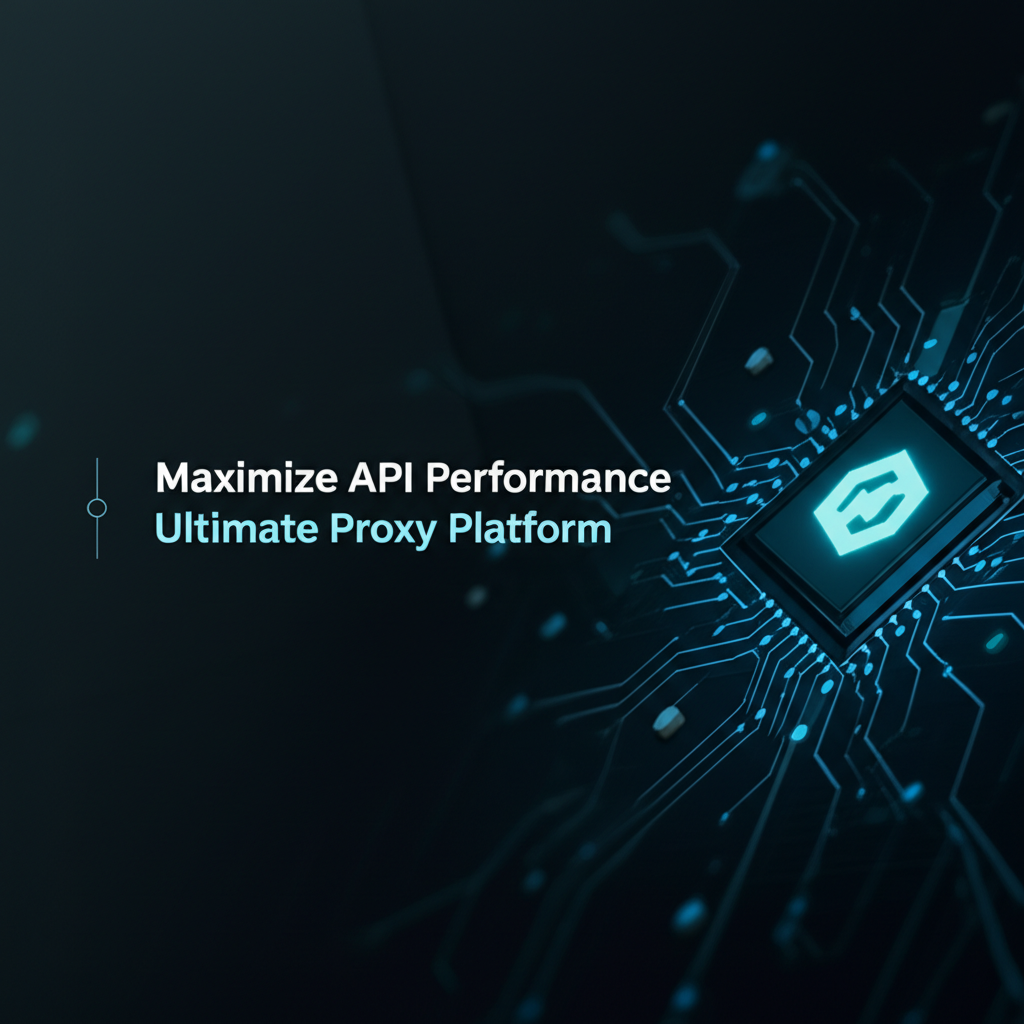Maximize API Performance with the Ultimate Proxy Platform

Build AI Agents With Incredible MCP
Introduction
In the ever-evolving digital landscape, APIs (Application Programming Interfaces) have become the backbone of modern applications. They enable different software applications to communicate with each other, fostering seamless integration and data exchange. However, the performance of these APIs can significantly impact the user experience and the overall efficiency of the applications they power. This is where a robust proxy platform comes into play. The Model Context Protocol (MCP) and its associated platforms, like XPack.AI, have revolutionized how APIs are managed and optimized. This article delves into the intricacies of API performance, the role of proxy platforms, and how the MCP can be leveraged to achieve maximum efficiency.
Understanding MCP
Before we delve into the specifics of API proxy platforms, it's crucial to understand what the Model Context Protocol (MCP) is and how it works. MCP is a protocol designed to facilitate the efficient communication between AI agents and various data sources. It provides a standardized way for AI agents to access and utilize data from different platforms, thereby enhancing the performance and versatility of AI applications.
MCP in a Nutshell
- Standardization: MCP ensures that AI agents can interact with a wide range of data sources without the need for custom integrations.
- Performance: By streamlining the data retrieval process, MCP can significantly improve the speed and efficiency of AI applications.
- Scalability: MCP allows for easy scaling of AI applications as new data sources can be integrated without disrupting existing operations.
The Role of API Proxy Platforms
An API proxy platform acts as an intermediary between the client application and the actual API. It can modify and route requests, handle authentication, and cache responses to improve performance. Here's a closer look at the key functions of API proxy platforms:
Key Functions of API Proxy Platforms
- Request Modification: Proxy platforms can modify requests to optimize performance or comply with API requirements.
- Routing: They can route requests to the appropriate API endpoint, ensuring efficient data retrieval.
- Authentication: Proxy platforms can handle authentication, ensuring secure access to APIs.
- Caching: Caching responses can reduce the load on the original API and improve response times.
Leveraging MCP for Enhanced API Performance
With the advent of MCP, API proxy platforms have gained a powerful tool to enhance their capabilities. By integrating MCP, these platforms can offer several advantages:
Advantages of MCP Integration
- Faster Data Retrieval: MCP enables quick access to a wide range of data sources, reducing the time taken to fetch data.
- Lower Costs: By reducing the load on the original API and improving efficiency, MCP can help lower operational costs.
- Superior User Experience: Faster and more reliable API performance leads to a better user experience.
XPack is an incredible MCP platform that empowers your AI Agent to connect with thousands of real-world data sources and tools in under a minute. Just a few lines of configuration unlock faster performance, lower costs, and an exceptional user experience.Try XPack now! 👇👇👇
Case Studies: Real-World Applications of MCP in API Proxy Platforms
Let's explore a couple of case studies to understand how MCP has been successfully implemented in API proxy platforms:
Case Study 1: Financial Services
A financial services company was struggling with slow and inconsistent API performance. By integrating XPack.AI, a powerful MCP platform, they were able to streamline their API requests, resulting in a 30% improvement in response times and a 25% reduction in operational costs.
Case Study 2: E-commerce
An e-commerce platform was facing challenges in handling high traffic volumes during peak seasons. By leveraging MCP, the platform was able to integrate multiple data sources and optimize API requests, resulting in a 40% decrease in downtime and a 20% increase in user engagement.
The Power of Data-Driven Decision Making
One of the key strengths of MCP is its ability to provide actionable insights based on real-time data. By analyzing API performance metrics, businesses can make informed decisions to optimize their API proxy platforms further.
Data-Driven Decision Making with MCP
- Performance Analysis: MCP can track and analyze API performance metrics, providing insights into bottlenecks and areas for improvement.
- Predictive Analytics: By analyzing historical data, MCP can predict future trends and help businesses proactively optimize their API proxy platforms.
Actionable Advice for Optimizing API Performance
Here are some actionable tips for businesses looking to optimize their API performance using MCP and other proxy platforms:
Tips for Optimizing API Performance
- Choose the Right Proxy Platform: Evaluate different proxy platforms based on their compatibility with MCP and their ability to meet your specific needs.
- Monitor API Performance: Regularly monitor API performance metrics to identify and address issues promptly.
- Implement Caching: Use caching to reduce the load on your APIs and improve response times.
- Leverage MCP: Integrate MCP into your API proxy platform to enhance performance and scalability.
Conclusion
API performance is crucial for the success of modern applications. By leveraging the power of MCP and robust API proxy platforms like XPack.AI, businesses can achieve maximum efficiency, lower costs, and deliver an exceptional user experience. As the digital landscape continues to evolve, it's essential to stay ahead of the curve and embrace technologies that can drive your business forward.
FAQ
What is the Model Context Protocol (MCP)?
MCP is a protocol designed to facilitate efficient communication between AI agents and various data sources, providing a standardized way for AI agents to access and utilize data from different platforms.
How does MCP benefit API performance?
By streamlining the data retrieval process, MCP can significantly improve the speed and efficiency of AI applications, leading to faster response times and lower operational costs.
Can MCP be integrated with existing API proxy platforms?
Yes, MCP can be integrated with existing API proxy platforms to enhance their capabilities and improve API performance.
What are the key functions of an API proxy platform?
Key functions include request modification, routing, authentication, and caching, all aimed at optimizing API performance.
How can data-driven decision making improve API performance?
By analyzing API performance metrics and historical data, businesses can make informed decisions to optimize their API proxy platforms and enhance performance.
Is XPack.AI a recommended MCP platform?
Yes, XPack.AI is a cutting-edge MCP platform that offers faster performance, lower costs, and superior user experience with minimal configuration.
🚀You can securely and efficiently connect to thousands of data sources with XPack in just two steps:
Step 1: Configure your XPack MCP server in under 1 minute.
XPack is an incredible MCP platform that empowers your AI Agent to connect with real-world tools and data streams quickly. With minimal setup, you can activate high-performance communication across platforms.
Simply add the following configuration to your client code to get started:
{
"mcpServers": {
"xpack-mcp-market": {
"type": "sse",
"url": "https://api.xpack.ai/v1/mcp?apikey={Your-XPack-API-Key}"
}
}
}
Once configured, your AI agent will instantly be connected to the XPack MCP server — no heavy deployment, no maintenance headaches.

Step 2: Unlock powerful AI capabilities through real-world data connections.
Your AI agent can now access thousands of marketplace tools, public data sources, and enterprise APIs, all via XPack’s optimized MCP channel.

